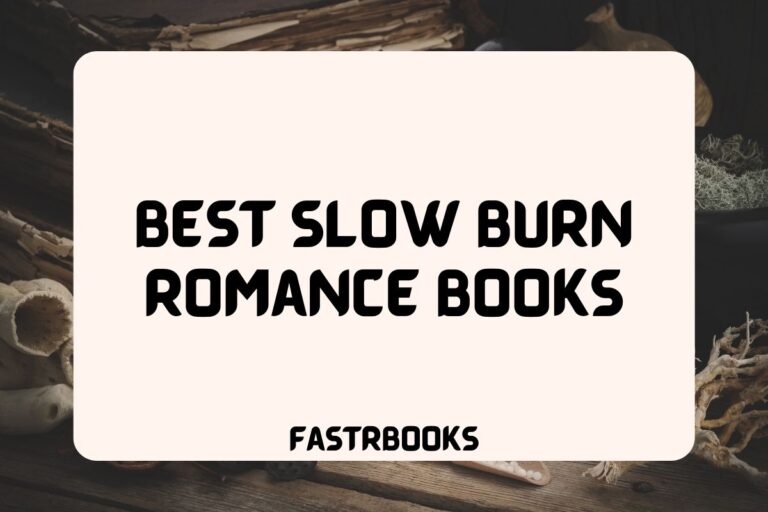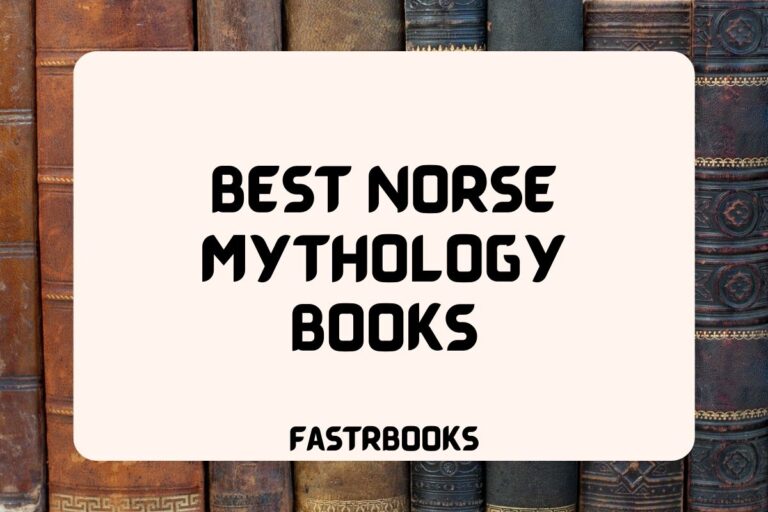10 Best Books on Taoism
Have you ever found yourself pondering the mysteries of existence, seeking harmony in a chaotic world, or striving to live in accordance with the natural flow of life?
If so, you’re not alone.
Many throughout history have turned to the wisdom of Taoism, an ancient Chinese philosophy that offers profound insights into the nature of reality and the art of living.
At the heart of Taoism is the concept of the Tao, often translated as “the Way.”
But what exactly is the Tao?
Is it a divine force, a cosmic principle, or something else entirely?
Exploring this question is like embarking on a journey into the depths of the human spirit, where words often fall short, and understanding arises from intuitive insight rather than intellectual analysis.
And to help you seek the correct answer, here are some books that will definitely pave your way forward.
Best Books on Taoism
1. Tao Te Ching by Laozi
The “Tao Te Ching” by Laozi is one of the most fundamental and revered texts in Taoism. Written in the 6th century BCE, it consists of 81 short chapters that provide profound insights into the nature of existence, the art of governance, the importance of humility, and the path to peace and harmony.
The text is poetic, dense with philosophical concepts, and open to myriad interpretations, making it a lifetime study for many.
What makes it amazing?
The “Tao Te Ching” stands out for its timeless wisdom and the profound simplicity with which it approaches complex philosophical ideas. Its teachings on balance, moderation, and the importance of following the “Way” (Tao) resonate with readers across ages and cultures.
The text’s ability to be both a guide for personal spirituality and a manual for rulership and leadership adds to its uniqueness and enduring appeal.
2. Zhuangzi (Chuang Tzu)
The “Zhuangzi” is another foundational text of Taoism, attributed to the philosopher Zhuangzi (or Chuang Tzu) in the 4th century BCE. This book is known for its imaginative anecdotes, allegorical tales, and humorous reflections on life, which serve to illustrate the nature of the Tao and the value of a life lived in spontaneous harmony with the universe.
Zhuangzi’s skepticism of conventional values and his advocacy for freedom from societal constraints make his work profoundly liberating.
What makes it amazing?
What sets the “Zhuangzi” apart is its literary brilliance and philosophical depth, coupled with a sense of humor that lightens the profound insights it offers. It challenges readers to question their perceptions and assumptions about life, happiness, and success, advocating for a life of simplicity and in accordance with nature.
Its enduring appeal lies in its capacity to inspire contemplation and offer solace from the rigid structures of society.
3. The Tao of Pooh by Benjamin Hoff
“The Tao of Pooh” is a unique book that introduces the principles of Taoism through the characters of A.A. Milne’s Winnie-the-Pooh. Benjamin Hoff uses the adventures of Pooh and his friends to illustrate Taoist concepts in a way that is accessible and engaging to readers of all ages.
This approachable book bridges Eastern philosophy and Western pop culture, making it an excellent introduction to Taoism for those unfamiliar with the subject.
What makes it amazing?
“The Tao of Pooh” is remarkable for its ability to simplify complex Taoist principles into lessons that are easy to understand and apply to everyday life.
Hoff’s ingenious use of beloved childhood characters to explain philosophical concepts like simplicity, effortlessness, and naturalness makes Taoism approachable and relatable.
This book has the power to change the way readers view the world, encouraging a more laid-back and thoughtful approach to life.
4. Tao: The Watercourse Way by Alan Watts
In “Tao: The Watercourse Way,” Alan Watts provides a comprehensive introduction to the philosophy and practice of Taoism, including its historical background, core principles, and how it compares to other spiritual traditions.
Watts, known for his ability to interpret and popularize Eastern philosophy for Western audiences, presents Taoism as a way of life that emphasizes the flow of life like water, advocating for flexibility, adaptability, and the path of least resistance.
What makes it amazing?
What makes “Tao: The Watercourse Way” amazing is Alan Watts’s skillful blend of scholarship, personal insight, and accessibility. He demystifies Taoism, making its practices and philosophy understandable and applicable to a Western audience.
His engaging narrative invites readers to look at the world through the lens of Tao, encouraging a deeper appreciation for the natural order and the interconnectedness of all things.
5. The Complete Works of Lao Tzu: Tao Teh Ching & Hua Hu Ching translated by Hua-Ching Ni
This book presents two significant works attributed to Lao Tzu: the “Tao Te Ching” and the “Hua Hu Ching.” While the “Tao Te Ching” is well-known, the “Hua Hu Ching” is less so, offering additional teachings and insights attributed to Lao Tzu.
Hua-Ching Ni’s translation and commentary provide a deep and accessible exploration of Taoist philosophy, emphasizing the practical application of these teachings in daily life.
What makes it amazing?
The inclusion of the “Hua Hu Ching” alongside the “Tao Te Ching” makes this book a valuable resource for those looking to deepen their understanding of Taoist philosophy.
Hua-Ching Ni’s expert translation and insightful commentary illuminate the texts, making the profound teachings of Lao Tzu accessible to modern readers. This book offers a comprehensive overview of Taoist wisdom, presenting a holistic view of the path to harmony and balance.
6. The Tao of Daily Life by Derek Lin
“The Tao of Daily Life” combines the ancient wisdom of Taoism with practical applications for the modern world. Derek Lin uses stories and anecdotes from Taoist lore, along with commentary and interpretation, to illustrate how Taoist principles can be applied to various aspects of daily living, such as business, relationships, and personal growth.
This book is an accessible guide for those seeking to incorporate the principles of balance, peace, and harmony into their everyday lives.
What makes it amazing?
What sets “The Tao of Daily Life” apart is its practical approach to Taoism. Derek Lin bridges the gap between the mystical aspects of Taoism and the concrete challenges of contemporary life, offering actionable advice that readers can apply immediately.
The book’s clear, engaging style demystifies Taoist teachings, making them accessible and relevant. It’s an essential read for anyone looking to navigate life’s challenges with grace and wisdom.
7. Vitality, Energy, Spirit: A Taoist Sourcebook edited by Thomas Cleary
“Vitality, Energy, Spirit: A Taoist Sourcebook” is a comprehensive collection of Taoist texts, edited and translated by Thomas Cleary. It includes writings from a variety of Taoist schools and traditions, offering readers a broad perspective on the depth and diversity of Taoist philosophy.
The selection ranges from foundational texts of Taoist philosophy to practical guides on meditation, health, and alchemy, providing a well-rounded view of Taoist practices and beliefs.
What makes it amazing?
This sourcebook is remarkable for its breadth and depth, offering an unparalleled window into the rich tapestry of Taoist tradition. Thomas Cleary, a respected scholar and translator, provides clear translations and insightful introductions to each section, making complex concepts accessible.
This collection is invaluable for anyone interested in exploring the various dimensions of Taoism, from its philosophical underpinnings to its practical applications in daily life.
8. The Secret of the Golden Flower: A Chinese Book of Life
“The Secret of the Golden Flower” is a classic text of Chinese alchemy, often associated with Taoist internal alchemy practices. It offers guidance on meditation and breathing techniques aimed at cultivating vitality, energy, and spiritual enlightenment.
The text is symbolic and metaphorical, requiring interpretation, but it serves as a guide to transforming consciousness and achieving union with the Tao.
What makes it amazing?
“The Secret of the Golden Flower” is fascinating for its blend of mysticism, psychology, and philosophy. It provides a unique insight into the Taoist pursuit of immortality, not through physical means, but through the cultivation of the inner life.
The book’s emphasis on inner transformation and enlightenment has made it a source of inspiration for people interested in meditation and spiritual growth, transcending its Taoist origins to influence various spiritual traditions.
9. Awakening to the Tao by Liu I-Ming
“Awakening to the Tao” is a work by Liu I-Ming, an 18th-century Taoist sage, which is a collection of short essays and aphorisms that elucidate the practical aspects of Taoist philosophy.
Liu I-Ming provides insights into the Taoist path of self-cultivation and integration of opposites, offering guidance on how to live in harmony with the natural world and the inner self. The text is both a philosophical treatise and a practical guide to living.
What makes it amazing?
“Awakening to the Tao” is notable for its clarity and practicality. Liu I-Ming’s ability to distill complex Taoist concepts into accessible wisdom makes this book a valuable resource for those seeking to apply Taoist principles in their lives.
The work emphasizes the dynamic process of spiritual transformation and the importance of adaptability, making it a timeless guide for personal development and enlightenment.
10. The Way of Chuang Tzu by Thomas Merton
“The Way of Chuang Tzu” is a collection of paraphrases and interpretations of the teachings of Zhuangzi by Thomas Merton, a Trappist monk known for his efforts to bridge Eastern and Western spiritual traditions.
Merton brings a unique perspective to Zhuangzi’s work, highlighting its relevance to contemporary spiritual seekers and emphasizing the common ground between Taoist wisdom and Christian mysticism.
What makes it amazing?
What makes “The Way of Chuang Tzu” amazing is Merton’s ability to present Zhuangzi’s teachings in a way that resonates with readers of all spiritual backgrounds.
His interpretations underscore the universal themes of freedom, simplicity, and unity with the natural world, making the ancient wisdom of Zhuangzi accessible and applicable to modern life. Merton’s work is a testament to the timeless relevance of Taoist philosophy and its capacity to inspire spiritual awakening across cultural boundaries.






